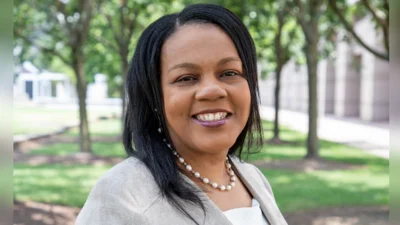Jason Bedrick, The Heritage Foundation | EdChoice
Jason Bedrick, The Heritage Foundation | EdChoice
A measure currently under consideration in the North Carolina State Legislature may have great import to the questions of school choice and status, according to a notable education policy advocate.
Jason Bedrick, a former member of the New Hampshire House of Representatives and Research Fellow at The Heritage Foundation in Washington, D.C., explained that North Carolina’s recent approval of House Bill 823—which called for $488 million to eliminate the waitlist for the Opportunity Scholarship Program and Education Student Account programs and to replenish the OSP reserve fund—could have an influential impact upon issues of school choice and status.
“The purpose of public education is to ensure that every child has access to a learning environment that best meets his or her individual learning needs. State lawmakers, such as those in North Carolina, are increasingly realizing that no one school can best meet the needs of all the students who just happen to live nearby. Programs like North Carolina’s K-12 education savings account policy empower families to choose the learning environments that work best for their children, thereby living up to the promise of public education,” Bedrick told Old North News.
“However, at present, not every eligible child in North Carolina can actually get access to an ESA due to funding limits. By fully funding the waitlist, North Carolina lawmakers will live up to their obligations to all the state’s students by opening a world of educational opportunities.”
Dr. Robert Luebke, Director of the Center for Effective Education at the John Locke Foundation, recently wrote that the possibility of the North Carolina House of Representatives’ making a move to include funding to nix the waitlist as an item in the state budget would be “a bad decision.”
“The hope was that the North Carolina House of Representatives would take quick action and a bill would get to the governor’s desk quickly. It’s expected the governor would veto the legislation, and that would likely set up important veto override votes in each house. But that is not happening— yet. House leaders view the appropriation as a significant budget item. As such, they will likely instead include funding to eliminate the waitlist in the state budget. Such a decision is bad for a variety of reasons,” Luebke said.
“Tying expansion to the budget bill hurts families and students. Families need to know now if they will have the money to move their child to another school. Practically speaking, tying this legislation to the budget delays their decision a minimum of two months. It only ensures parents will have no certainty about whether their child will have a scholarship and a new school to attend next year. By the time a budget passes, it will likely be too late for most families to take advantage of the additional funding, forcing them to wait another year. Linking expansion to the budget bill also hurts schools. Delaying the decision means schools will not know how many new students to expect or how many students might be leaving. The uncertainty will cast a fog over the planning process at a very important time of year. Lastly, the House’s actions are bad for lawmakers. Last fall, the House and Senate both basked in the glow of the good publicity lawmakers received for expanding educational options for parents. Promising voters and then not delivering when parents need to make decisions about their child’s education does not sit well with voters, especially six months before an election.”
Luebke also sought to refute the perception from progressives that under this program, the public would be paying for the private education of the wealthy.
“A household with an income of $1,000,000 in North Carolina, after the standard deduction ($25,500) is subtracted and a tax rate of .045 percent is applied to the remainder, is subject to a state income tax of $43,852 (assuming they don’t itemize deductions or take any other deductions). If the family is awarded an Opportunity Scholarship, it receives approximately $3,300. The household would still pay about $40,550 in personal income taxes, about 92 percent of the original liability. Average household income in North Carolina in 2022 was $92,878. That income – if we assume a standard deduction ($25,500) and a standard deduction for two children ($1,500 x 2 = $3,000), produces a tax liability of approximately $2,900, about one-fourteenth the tax liability of a millionaire. The point: Millionaires are paying not only for the education of their own children but also for the education of many others,” Luebke said.
“Critics seem intensely focused on the $3,300 scholarships high-income families might receive. It should be noted that the scholarship is pro-rated by income. Award to high-income households are significantly less than the $7,400 awarded to recipients with the lowest household income. Lastly, if scholarship opponents are opposed to the $3,300 ‘subsidy’ students enrolled in schools of their choice, why do they ignore the nearly $13,000 in subsidies each millionaire child enrolled in a traditional public school receives? Opponents also forget that high income households pay more in income and property taxes that help to finance a public school system for all.”
On May 7, HB 823 was referred to North Carolina’s Committee on Rules, Calendar and Operations of the House.






 Alerts Sign-up
Alerts Sign-up